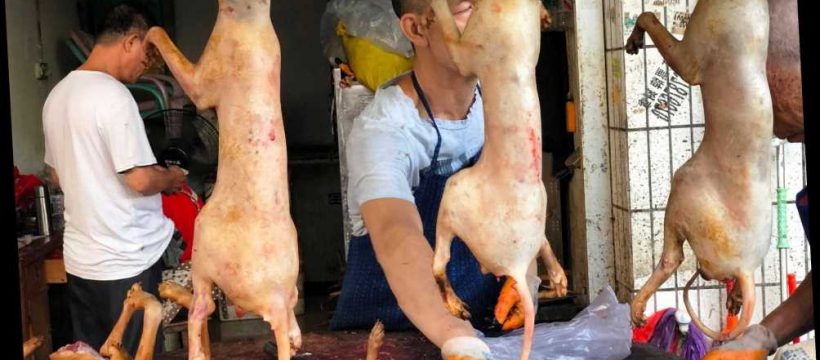THE ongoing coronavirus outbreak has sparked calls for a global ban on wild animal markets to stop the spread of the condition.
Public health experts have said that the markets, which often see live animals sold for human consumption, are the likely cause of the outbreak, which has so far claimed the lives of 26 people.
The markets are widespread in China, Vietnam, and elsewhere in southeast Asia, and often see live, wild animals intended for use in cooking being sold.
The city of Wuhan in eastern China, which has been identified as the source of the outbreak and is currently on lockdown, is home to the large Huanan seafood market, which is currently shuttered.
An inventory outside one of the markets shops advertised live wolf pups, scorpions, bamboo rats, squirrels, foxes, civets, salamanders, turtles, and crocodiles, the Guardian reported.
Also for sale were crocodile tail, intestines, and tongue.
The 2002-3 outbreak of Sars, which causes severe respiratory problems and results from a similar coronavirus to the one currently spreading in China, led to a temporary ban on the markets, but many are now operating again.
'A PERFECT STORM'
Speaking to the Guardian, Professor Diana Bell, of the School of Biological Sciences at the University of East Anglia, said risks associated with selling wild animals had combined with the fact they are now "luxury items" to create a "perfect storm".
"There is a shift from subsistence hunting to feed your family – that might make your family sick but it doesn’t go anywhere else," she said.
"Now, these animals are being sold into a multibillion pound illegal trade, right up there with drugs. They cost more than livestock.
“People who are interviewed say they prefer wild meat. Rich businessmen will take their colleagues to wildlife restaurants.”
Asked about the original source of the virus, she said: “An obvious candidate is wild rodent [such as bamboo rat] in the market. Hygiene levels are poor.
"They are cutting the throats of animals in front of people, so there will be a lot of blood everywhere.
"Don’t think these wild animals are being fed, but they might opportunistically be feeding on rodents in the market.”
She added that "people need to stop eating wildlife" and that the Chinese government should close "the wet markets down".
"How many warning shots do we need?" she said.
Dr Christian Walzer, executive director of the Wildlife Conservation Society's health programme, said: “If these markets persist… the public will continue to face heightened risks from emerging new viruses, potentially more lethal, and the source of future pandemic spread."
Source: Read Full Article





